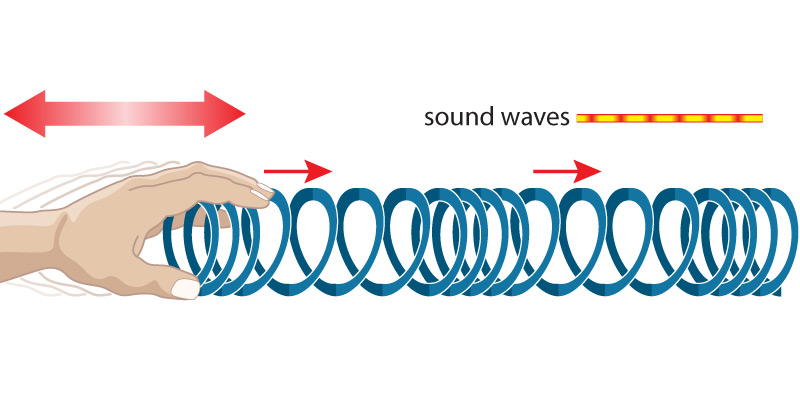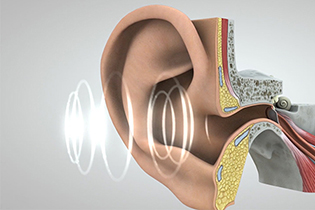Why can’t sound travel through space?
In many science fiction movies, you’ll hear thunderous sounds as aliens do battle somewhere out in space. But in reality, you wouldn’t hear anything, because the sound waves that we hear cannot travel though space. To understand why, we have to think about the nature of sound.
Sound waves are pressure waves that travel as matter bunches up in some places and stretches out in others. The idea is analogous to what you’ll see if you push and pull on a Slinky (Figure 1): you’ll notice a wave traveling along the Slinky in which the coils alternately bunch up and stretch out. (Note that this is the same figure you saw in the Take it to the Next Level box on seismic waves, since seismic P waves are also a pressure wave.)

We hear sound when pressure waves push on our eardrums, making the ear drum vibrate in a way that our brain interprets as sound (Figure 2). Because space is essentially an airless vacuum, there is not enough matter to push on our ear drums in a way that would allow us to hear any sound. Therefore, the true sound of space is silence.

There’s an important subtlety to this idea for astronomy: Although we usually think of space as being an empty vacuum, it is not a perfect vacuum. There are at least a few scattered atoms and molecules everywhere in space, and in some places there are enough of them that they glow beautifully in astronomical photographs (Figure 3), even though the density is so low that it would feel like a perfect vacuum to us.
The fact space is not completely empty means that it is possible for pressure waves to travel through the matter in space; indeed, some of the patterns you see in Figure 3 are caused by these types of pressure waves. However, while astronomers sometimes refer to these waves as “sound waves” in space, you could not hear them: The extremely low density of space means that even if you had your ear exposed as these waves passed by, there would be so few atoms and molecules pushing on your ear drum that it would not move, so you would hear nothing at all.
